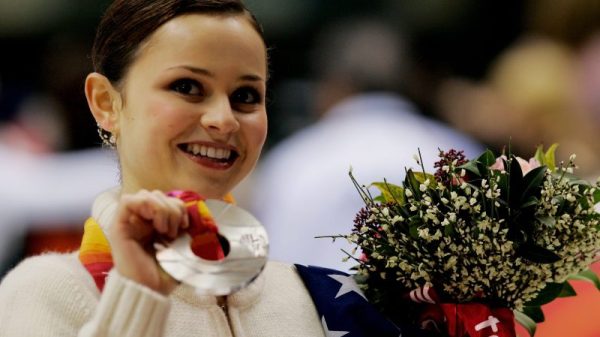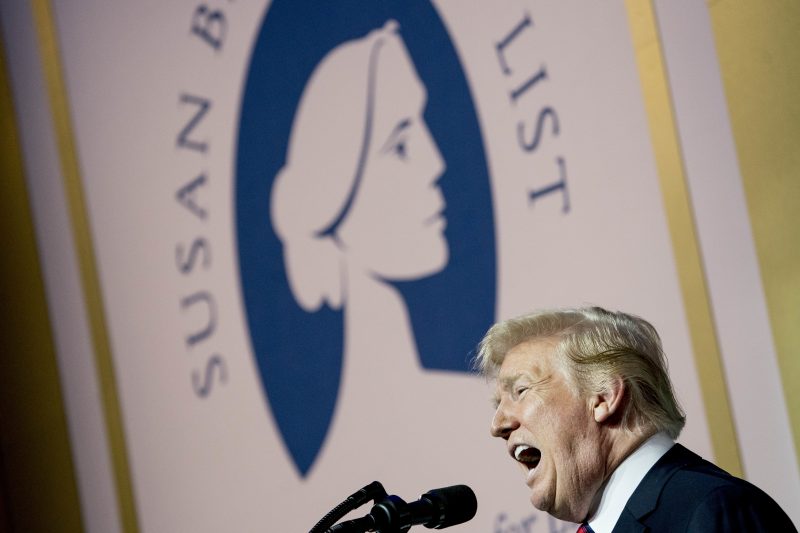If the 2024 GOP nomination process has begun to look like a coronation of Donald Trump, this event might epitomize it: A key antiabortion group this week suddenly signaled a more sympathetic posture to Trump, despite little indication that he has come to support the group’s position.
About three weeks ago, Susan B. Anthony Pro-Life America offered a remarkable criticism of the former president. Trump’s campaign had said he agreed with the Supreme Court in its Dobbs v. Jackson Women’s Health Organization decision that abortion is an “issue that should be decided at the state level.” The group made clear in no uncertain terms that this wasn’t good enough.
“President Trump’s assertion that the Supreme Court returned the issue of abortion solely to the states is a completely inaccurate reading of the Dobbs decision and is a morally indefensible position for a self-proclaimed pro-life presidential candidate to hold,” the group said.
It added that supporting a federal ban on abortion after 15 weeks was a must to earn its support. “We will oppose any presidential candidate who refuses to embrace at a minimum a 15-week national standard,” it said.
Late Monday, the group was singing a different tune and suggesting Trump had moved toward that position. But it’s hard to tell how.
Its president, Marjorie Dannenfelser, issued a statement after a meeting with Trump and Sen. Lindsey O. Graham (R-S.C.), the leader of the federal effort to ban abortion after 15 weeks. This statement was laudatory, calling the meeting “terrific.”
But the statement made no mention of whether Trump now supported a federal 15-week ban. The omission is striking considering that it did describe other positions Trump took on abortion, including:
“During the meeting, President Trump reiterated his opposition to the extreme Democratic position of abortion on demand, up until the moment of birth …”“President Trump reiterated that any federal legislation protecting these children would need to include the exceptions for life of the mother and in cases of rape and incest.”
Asked whether Trump addressed a federal 15-week ban in the meeting, Susan B. Anthony Pro-Life America (SBA) spokeswoman Mary Owens simply referred to the same statement. Asked whether the group still considered the policy a must-have, Owens said: “Yes.”
Trump has in recent weeks seemingly left the door ajar to supporting a federal 15-week ban. But he did so while offering one of his trademark nonspecific responses.
“We’ll get something done where everyone is going to be very satisfied,” Trump said in New Hampshire. “I think we’ll get it done on some level, it could be on different levels, but we’re going to get it done. I know the issue very well. I think I know the issue better than most, and we will get that taken care of.”
Some interpreted this as Trump saying he might sign such a federal ban, while others noted that Trump conspicuously declined to support such a ban.
As the National Review noted after a conversation with Dannenfelser on Tuesday, the new SBA statement didn’t necessarily signal support for Trump. Dannenfelser disputed the Associated Press’s initial characterization that she had “aligned herself” with Trump.
But it certainly cast him in a friendlier light than it did three weeks ago. The idea seems to be that Trump hued to SBA’s position somewhat by signaling support for rape, incest and life-of-the-mother exceptions in a federal ban. The conservative outlet labeled this “a softening of the position Trump’s spokesman had taken.”
Whether it actually is a softening? Trump has supported these exceptions before. Perhaps you could say that his saying he would insist upon them in the context of federal legislation means he is now more open to federal legislation than his campaign’s statement three weeks ago indicated. But for a former president with a history of nonspecific, all-things-to-all-people responses, that would seem to be pretty thin gruel.
It’s certainly something worth watching. The group’s remarks three weeks ago seemed to be a major statement of intent as it sought to apply real pressure on a former president who few in the conservative movement have dared to go after in such blunt terms. If antiabortion groups were suddenly going after Trump on this issue, it could complicate matters for him.
Of course, if Trump is going to waltz to the nomination regardless, the group’s tactic has relatively little leverage. And we’ve seen plenty of times before how Trump’s hold over the GOP base can cause potential allies to set aside their principles. (It’s already happened with the antiabortion movement. Back in 2016, leading antiabortion activists including Dannenfelser said Trump “cannot be trusted” during the primaries, before she ultimately strongly backed him as the GOP nominee.)
Trump clearly doesn’t want to touch this issue right now; we’ll see if he’ll actually be forced to.



























